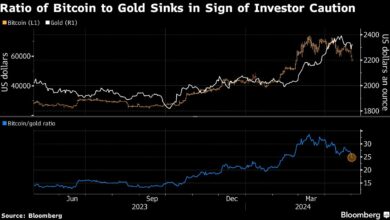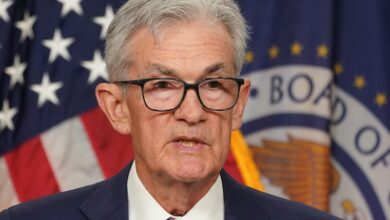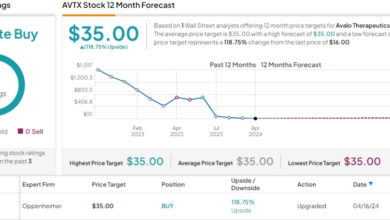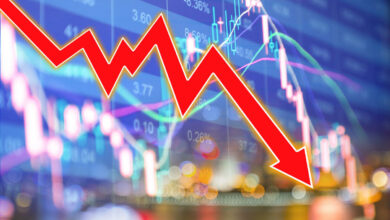Jamie Dimon says the Fed should hold off on cutting interest rates because the economy is ‘kind of booming’
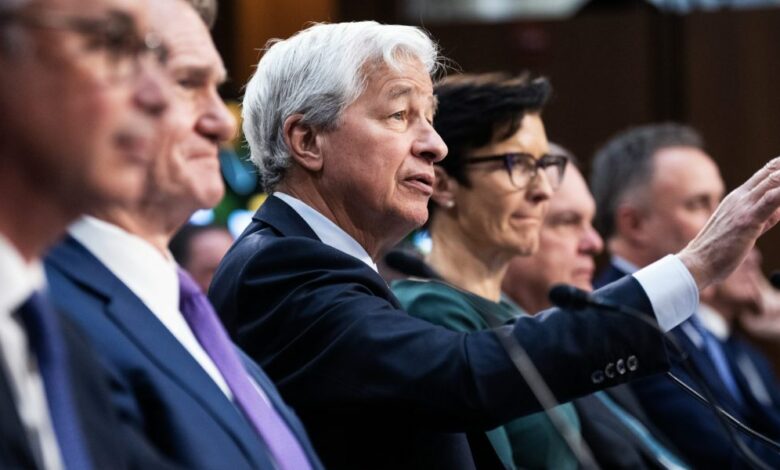

Last summer, with inflation steadily fading from its 9.1% four-decade high, most Wall Street forecasters were convinced that the Federal Reserve would begin cutting interest rates sooner rather than later. But ever since it sank to 3% in June 2023, inflation has been stuck in a narrow range. Multiple hotter-than-expected reports have come in just this year as a tight labor market, resilient consumer spending, ongoing supply-chain issues, and a number of other factors have combined to prevent consumer price increases from dropping down to the Fed’s 2% target.
For JPMorgan Chase CEO Jamie Dimon, that means Fed Chair Jerome Powell needs to ignore calls to begin cutting interest rates, despite the ongoing pain consumers and businesses are experiencing from elevated borrowing costs. “I think they have to be data-dependent. If I were them, I would wait,” Dimon said at the Australian Financial Review business summit via a livestream on Tuesday.
The JPMorgan Chase CEO noted that unemployment is “very low” and wages continue to rise, which should give the Fed some breathing room to keep interest rates higher without sinking the economy—which is “kind of booming.” Dimon also questioned some of the more positive current economic data, saying it should be taken with a “grain of salt” due to lingering COVID-era distortions. Plus, the Fed can always cut rates “quickly and dramatically” if needed, according to Dimon, who added: “Their credibility is a little bit at stake here. I would even wait past June and let it all sort it out.”
Dimon’s comments come after Fed Chair Powell told the Senate Banking Committee last week that after significant progress in taming inflation, interest rates are likely at their “peak” for this cycle. “If the economy evolves broadly as expected, it will likely be appropriate to begin dialing back policy restraint at some point this year,” he wrote in prepared testimony.
Despite that optimism, the Fed Chair also noted that the economic outlook remains “uncertain” and a return to 2% inflation is “not assured.” Investors largely ignored the warning, however, and took Powell’s comments as a sign rate cuts are on their way this summer. Markets are now pricing in 75% odds that the Fed will cut rates in June, and expect nearly one percentage point of cuts for the full year.
With the economy proving its resilience over the past year, and rate cuts likely, most economists and investment banks now believe that the U.S. will avoid a recession, achieving the much-anticipated “soft landing.” That’s a big shift from a year ago, when 65% of economists polled by Bloomberg still expected a recession, and an even bigger shift from October 2022, when 100% of economists in Bloomberg’s poll were convinced a recession was inevitable. But Dimon pushed back on Wall Street’s increasing economic bullishness this week.
“The world is pricing in a soft landing, at probably 70-80%,” he said. “I think the chance of a soft landing in the next year or two is half that.”
He went on to warn that while a recession is possible, the worst case scenario for the economy would actually be “stagflation”—the toxic economic combination of low growth and high inflation that wreaked havoc in the 1970s.
Dimon has been sounding the alarm about a repeat of the 70’s for a few months now. In January, he told Fox Business that large federal government deficits, geopolitical tensions that alter trade flows, and record government spending are all inflationary features that look just like the 70’s. As far as all the optimistic economic forecasts go, Dimon said he’s “a little skeptical of this kind of ‘Goldilocks’ kind of scenario.”
Source link

